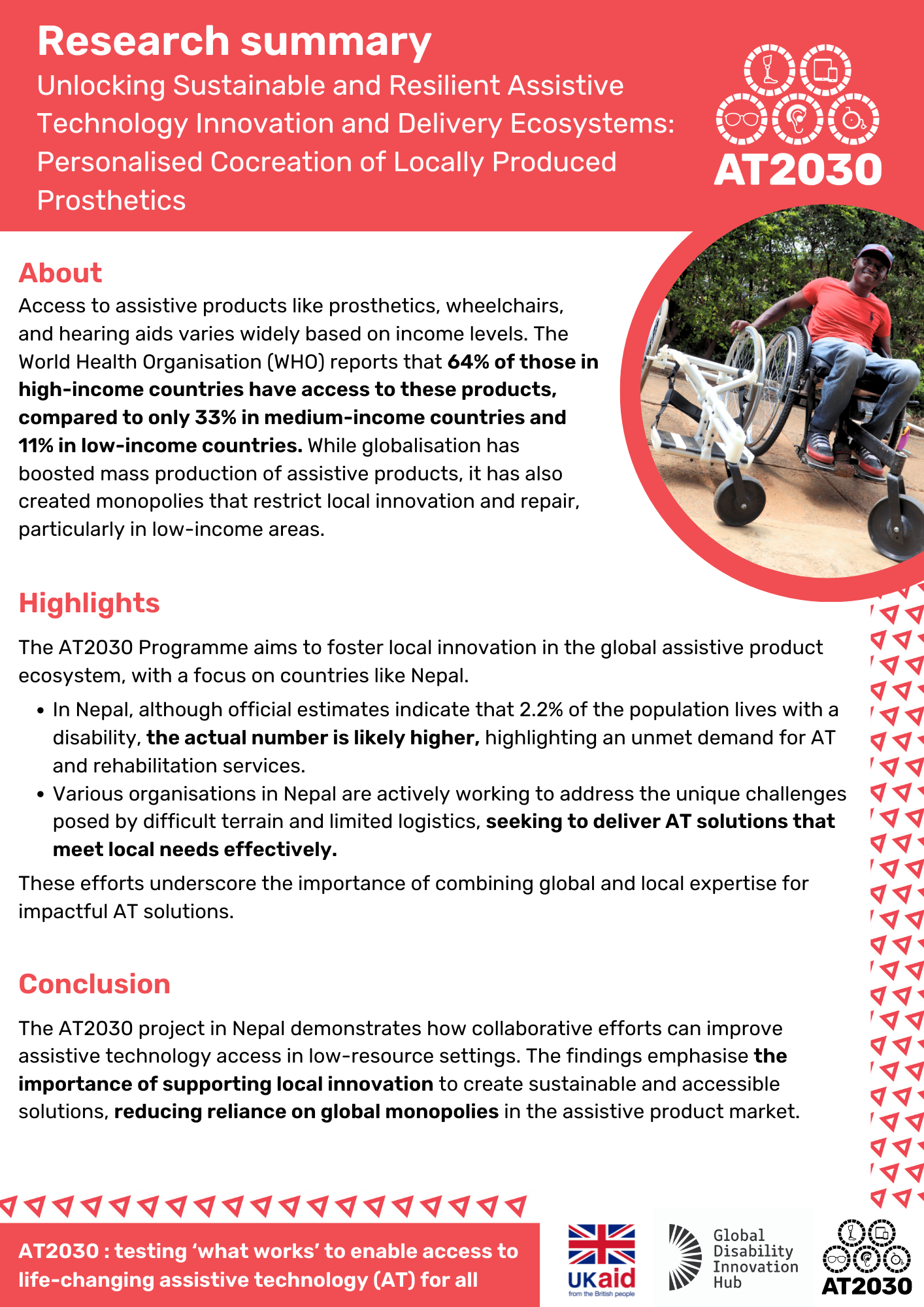Unlocking Sustainable and Resilient Assistive Technology Innovation and Delivery Ecosystems: Personalised Cocreation of Locally Produced Prosthetics: Research Summary
About
Access to assistive products like prosthetics, wheelchairs, and hearing aids varies widely based on income levels. The World Health Organisation (WHO) reports that 64% of those in high-income countries have access to these products, compared to only 33% in medium-income countries and 11% in low-income countries. While globalisation has boosted mass production of assistive products, it has also created monopolies that restrict local innovation and repair, particularly in low-income areas.
Highlights
The AT2030 Programme aims to foster local innovation in the global assistive product ecosystem, with a focus on countries like Nepal.
- In Nepal, although official estimates indicate that 2.2% of the population lives with a disability, the actual number is likely higher, highlighting an unmet demand for AT and rehabilitation services.
- Various organisations in Nepal are actively working to address the unique challenges posed by difficult terrain and limited logistics, seeking to deliver AT solutions that meet local needs effectively.
These efforts underscore the importance of combining global and local expertise for impactful AT solutions.
Conclusion
The AT2030 project in Nepal demonstrates how collaborative efforts can improve assistive technology access in low-resource settings. The findings emphasise the importance of supporting local innovation to create sustainable and accessible solutions, reducing reliance on global monopolies in the assistive product market.
